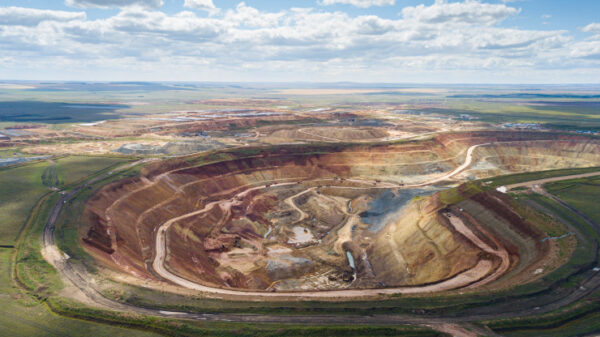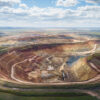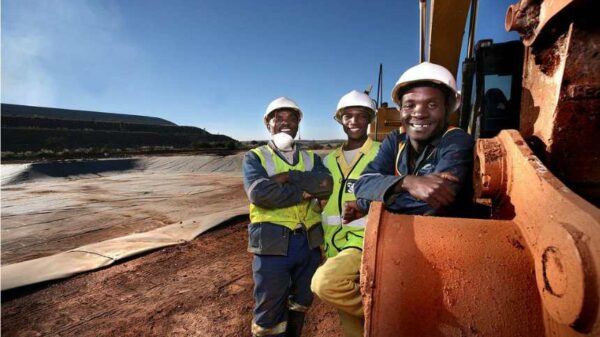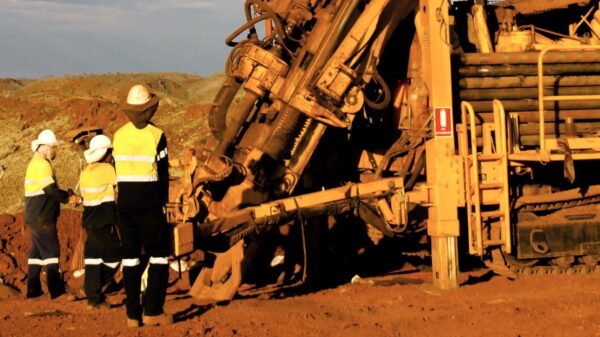Barrick Gold Corp’s (TSX: ABX) (NYSE: GOLD) problems in Mali keep ramping up as the country issued an extension on the ban to include the site’s stock of gold.
The company’s president and CEO, Mark Bristow, said on Monday that the shipping ban has wider implications than just operations, but expands to include the local economy and the 8,000 employees and local service providers.
For months, the Canadian mining giant has clashed with the government over dividing economic benefits from the Loulo-Gounkoto complex, which produced nearly 700,000 ounces of gold in 2023. Since early December, authorities have restricted gold shipments.
Bristow also warned that Barrick would temporarily suspend operations if the issue remained unresolved within a week, calling the move “deeply regrettable but necessary.”
“Barrick remains committed to constructive engagement with the Government of Mali to resolve the existing disputes amicably,” said Bristow.
“As previously disclosed, we have initiated arbitration through the International Centre for the Settlement of Investment Disputes (ICSID) as a recognized mechanism to address these matters of disagreement while maintaining the integrity of existing agreements.”
The blockade of gold shipments and the tense standoff with authorities have arrived at a critical moment for Mali’s mining industry. As Mali navigates political instability and a revamped regulatory framework, the future of one of its most significant economic drivers hangs in the balance.
MALI ISSUES ARREST FOR GOLD COMPANY CEO
Reuters reported on 5 December that Mali issued an arrest warrant for Mark Bristow, CEO of Canada-based mining giant Barrick Gold, for money laundering and violating financial regulations. This came after Bristow’s statement in November… pic.twitter.com/Zh2vmdGoRm
— African Stream (@african_stream) December 6, 2024
Read more: Calibre Mining finds high grade gold mineralization outside of its Valentine Mine resource
Read more: Calibre Mining shuffles strength into its board for future growth
A full 97% of Barrick mine employees are Malian nationals
Barrick developed the Loulo-Gounkoto complex during Bristow’s tenure as CEO of Randgold, prior to Barrick’s acquisition of the company in 2018. The complex serves as a cornerstone of Mali’s economy. Over the past 29 years, Barrick has invested more than $10 billion in the country, contributing between 5 per cent and 10 per cent of Mali’s GDP annually. Last year alone, Barrick injected over USD$1 billion into the local economy.
The mine complex ranks among Mali’s largest taxpayers and employers, with 97 per cent of its 8,000 made up of Malian nationals. Barrick states that more than 70 per cent of the complex’s economic benefits have flowed directly to the Malian state.
Mali has accused Barrick of failing to meet financial obligations, including unpaid taxes and dividends, with claims reaching up to USD$512 million.
The government, under a military junta since 2021, has tightened control over the mining sector, implementing audits that Barrick disputes as flawed. Mali’s new 2023 mining code increases state ownership in new mining projects to 35 per cent, but Barrick argues this should not apply retroactively to existing operations like Loulo-Gounkoto, where Mali holds a 20 per cent stake.
Additionally, Mali alleges Barrick has not upheld environmental and corporate social responsibility commitments from a previous agreement. Bristow stated that Barrick offered Mali 55 per cent of the Loulo-Gounkoto operation’s economic benefits, similar to a past deal with Tanzania, but declined to address the country’s demands for back taxes and fines.

Operations at the Loulo-Gounkoto complex in 2022. Image via Barrick Gold.
Read more: Calibre Mining revenue dips in Q3 as Valentine Mine nears completion
Read more: Mid-tier gold producer reconsiders production guidance after Q3 setbacks
Mining in Nevada benefits from stable political environment
Barrick’s other properties have run into their own share of problems, but nothing quite like what it’s dealing with it in Mali.
For example, in Tanzania, Barrick Gold operates the North Mara and Bulyanhulu gold mines through Twiga Minerals, a joint venture with the Tanzanian government that established a 50-50 economic split between Barrick and Tanzanian stakeholders.
Since taking operational control in 2019, Barrick has focused on improving efficiency and compliance at these sites. However, the company has faced allegations of human rights abuses at the North Mara mine, which it has contested. In late 2024, a case against Barrick concerning security incidents in Tanzania was dismissed by an Ontario court due to lack of jurisdiction.
In Nevada, Barrick Gold holds a 61.5 per cent stake in Nevada Gold Mines, a joint venture with Newmont Corporation, which owns the remaining 38.5 per cent. This partnership, created in 2019, brought together significant assets across Nevada, forming the world’s largest gold-producing complex. Despite its scale, Barrick reported lower-than-expected gold production in 2024, driven by reduced output at the Carlin and Cortez mines, though it expects a stronger fourth quarter supported by operational expansions.
Nevada is a major hub for gold mining, home to operations from companies like Barrick, Newmont Corporation (TSE: NGT) (NYSE: NEM), Calibre Mining Corp. (TSE: CXB) (OTMRKTS: CXBMF), and Kinross Gold Corp (TSE: K) (NYSE: KCG).
Its stable political environment and established regulatory framework foster relatively peaceful and efficient mining operations. This contrasts with regions like Tanzania and Mali, where companies often face challenges tied to shifting regulations, government relations, and socio-political tensions.
.
Calibre Mining is a sponsor of Mugglehead news coverage
.
joseph@mugglehead.com













